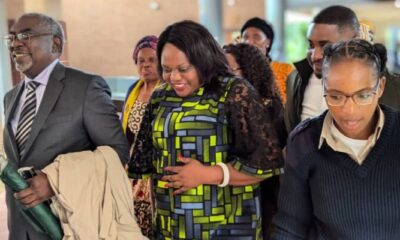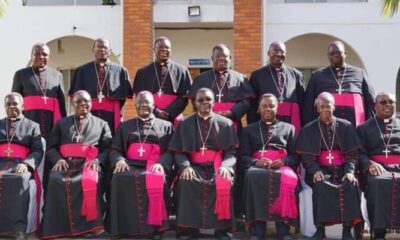Zambia is about to pull itself out of default more than three and a half years after legally declaring bankruptcy. The Southern African country is set to become the first country to finish a comprehensive overhaul under the G20-led ‘Common Framework’ framework on Tuesday when its foreign bondholders approve their share of a $13.4 billion debt restructuring.
The development will leave richer countries with some sobering insights into the effectiveness of their much-heralded debt relief plan.
The head of the International Monetary Fund (IMF), Kristalina Georgieva, has praised it as a significant indication of international cooperation, while Zambia’s president, Hakainde Hichilema, has already called it a historic occasion. However, it will be more of a wearying cheer than a joyous fist shake for many involved in the daily work—and many delays.
“It was painful for Zambia – we fully recognise that,” William Roos, the co-chair of both the ‘Paris Club’ of richer Western creditor nations and of Zambia’s Official Creditor Committee that included Zambia’s biggest lender China, said at a debt conference in Paris on Friday.
“So we have to improve. But we delivered.”
According to estimates, Zambia’s debt will be restructured to save over 900 million dollars and its future payments will be spread out over a considerably longer period. However, its prominence has come from its service as a Common Framework test subject.
The G20 framework provides for the temporary suspension of debt service payments from the poorest countries (73 low- and lower-middle-income countries) by their bilateral official creditors. The Framework was created to unify all the many lenders to developing nations under one roof, especially China, whose lending surged in the ten years before the pandemic. It was introduced during COVID-19 in 2020.
Although it was hailed as a breakthrough, criticism of the delays and complexity has arisen from the unusually long period Zambia’s reorganization has taken, as well as those still proceeding in Ghana and Ethiopia. All three nations’ officials and creditors have expressed dissatisfaction with the lack of transparency.
A government and IMF-approved agreement with private sector bondholders was temporarily derailed in November by the official creditor group, led by China and France, because it did not offer sufficient debt relief. Tensions had already surfaced when China demanded that the large multilateral development banks led by the West also absorb losses.
“The G20 framework… I do not think I want to recommend that to any country,” Ghana’s central bank governor, Ernest Addison, said at the same event Paris Club co-chair Roos was speaking at when asked about his country’s experiences.’
As part of the agreement, creditors in the official sector in Zambia would renegotiate loans totalling $6.3 billion, and three of the nation’s major bonds, valued at a combined $3 billion, will be consolidated into two with modified terms and payment schedules. There are still some small banks and other loans that need to be adjusted.
Zambia, Africa’s second-largest copper producer, may have to make additional payments if it recovers quickly, according to stipulations included in the new agreements, as noted by former IMF General Counsel Sean Hagan and expert in sovereign debt Brad Setser. But those extra payments might raise its debt to the point where the IMF declares it highly vulnerable to debt trouble once more.









































